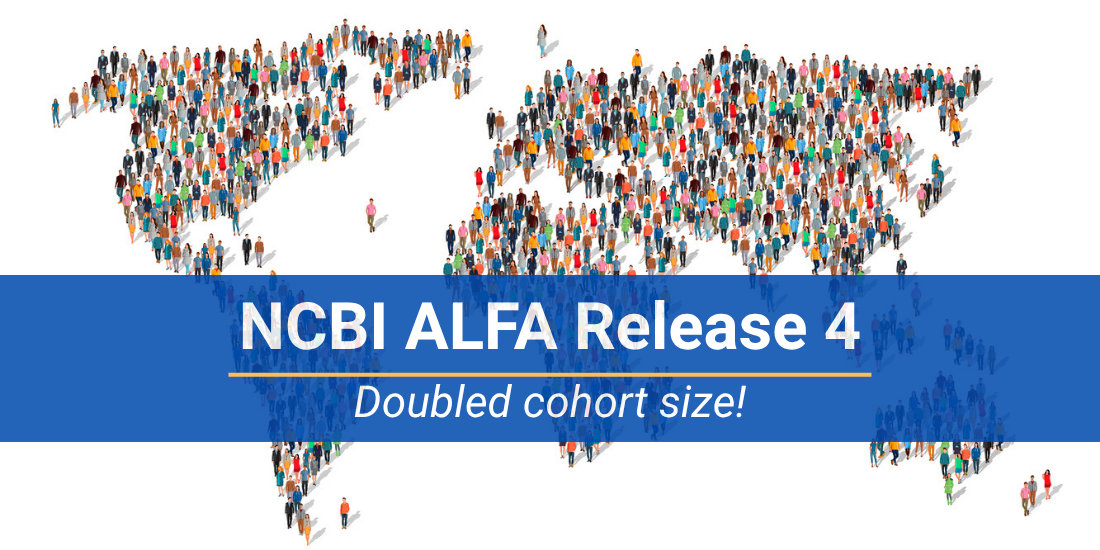Doubled cohort size to 409K
We are thrilled to announce the NCBI Allele Frequency Aggregator (ALFA) Release 4 (R4), a leap forward in providing comprehensive and robust allele frequency information to the global scientific community. ALFA R4 doubles the cohort size from R3! This expansion offers greater resolution for variant frequencies across diverse populations, improving the utility of ALFA for genetic research and clinical variant interpretation.
What’s new in ALFA Release 4 (vs. Release 3)?
Expanded cohort size (Table 1)
- Subject numbers doubled, providing greater statistical power and more accurate allele frequency estimates, especially for rarer variants
- Increase in confidently identified common variants (MAF >= 0.01) to over 15.5 million (up from 15.2 million)

Improved ClinVar annotation (Table 2)
- ALFA R4 provides frequency data for 959,966 ClinVar RS IDs, up 74.4% from R3!
- The number of ClinVar variants for which ALFA is the exclusive public source of frequency data increased by 35.1%
- Significantly increased coverage for medically important categories
- “Pathogenic” variants with ALFA frequency up by 41.3%
- “Likely Pathogenic” variants with ALFA frequency isup by 59.6%
- Significant gains were also seen for “Uncertain Significance” (+45.3%), “Likely Benign” (+127.8%), and “Benign” (+81.0%) variants

Refined understanding of novel variants
- Many variants classified as singletons in R3 have been observed in multiple individuals in the larger R4 cohort, leading to more robust classifications
- The overall trend reflects better alignment with maturing public reference databases, enhancing data consistency
Impact for researchers and clinicians
ALFA Release 4 helps you:
- Filter and prioritize variants in genomic studies
- Assess the clinical significance of variants observed in patients
- Understand population-specific allele frequency distributions
- Annotate variants lacking frequency data in other public resources
Stay up to date
Connect with NLM on social media to stay up to date with NCBI ALFA and other NCBI news.
Questions?
Please reach out to us if you have questions or would like to provide feedback.



